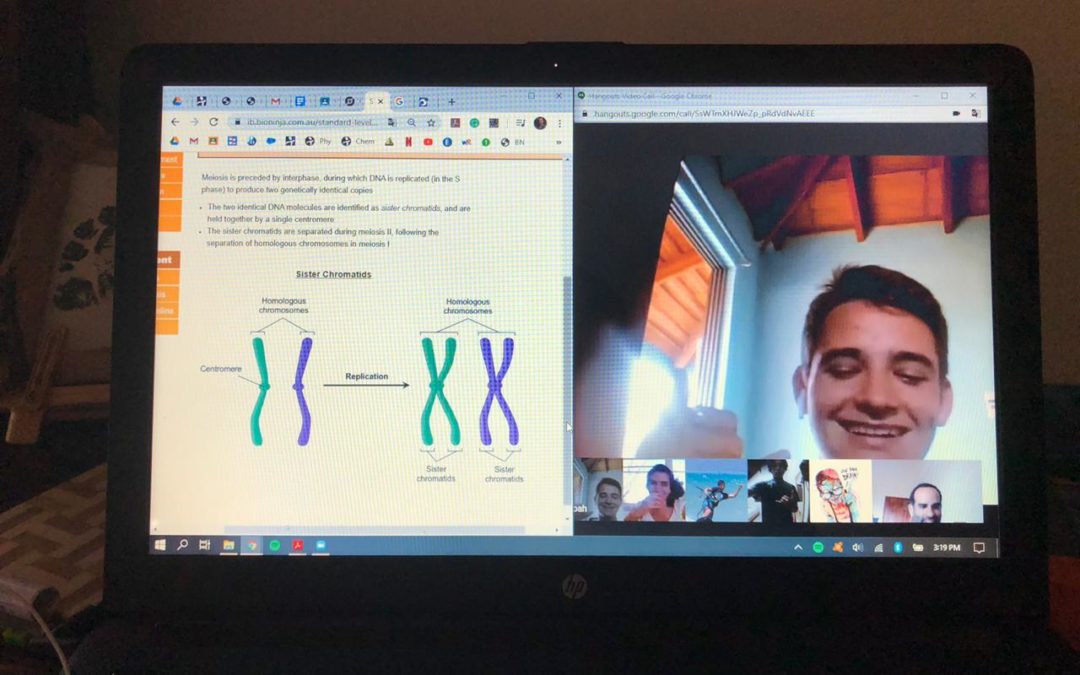
by Khalida Lockheed | May 3, 2020
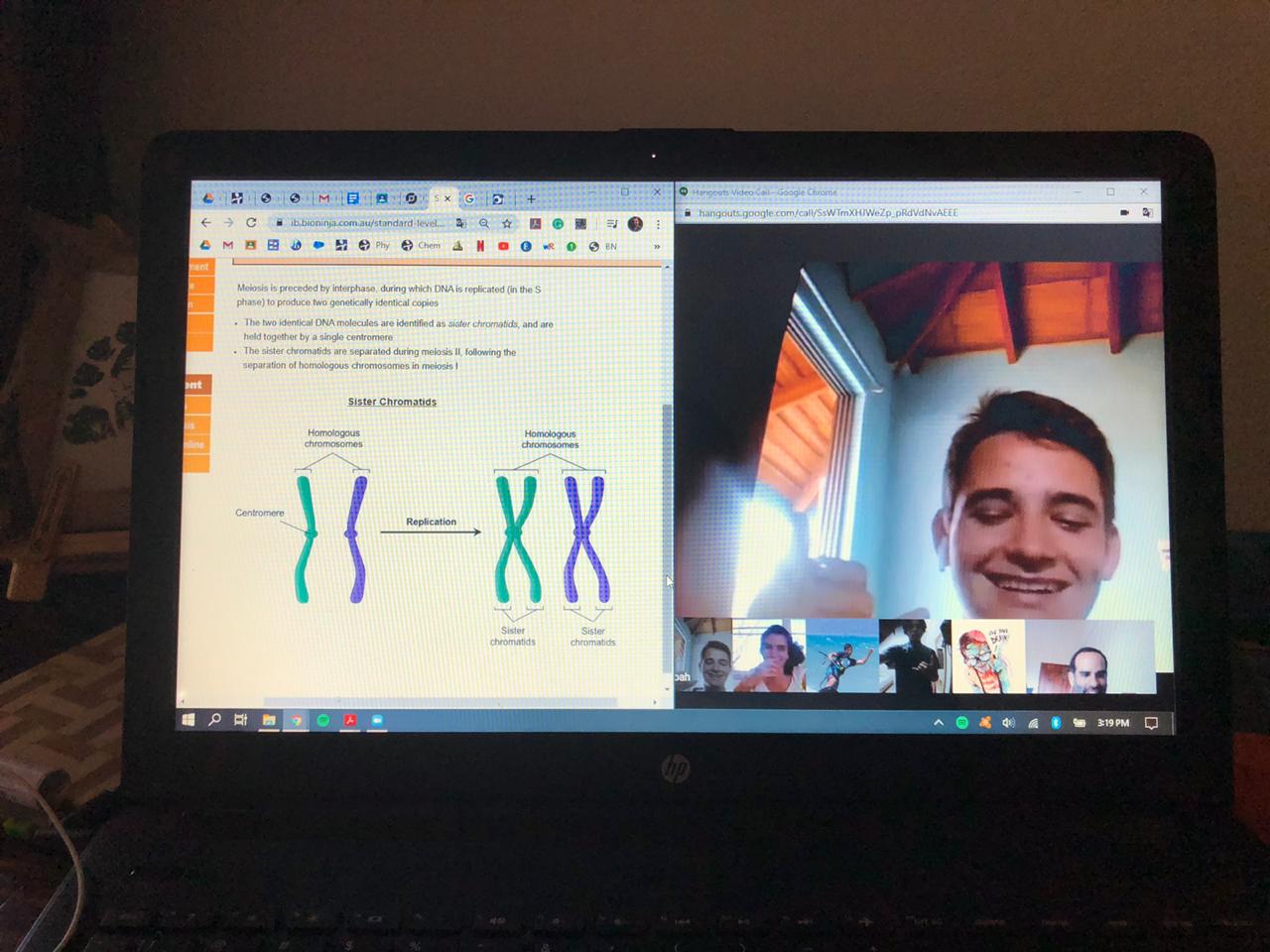
An integral part of an IB education, which our students are well aware of, is the IB’s Profile of a Learner. All students can name at least a few, having seen them on the coveted Valores and participated in fun Peace Practice activities illustrating them. As a reminder to our larger community, they are: risk takers, inquirers, knowledgable, thinkers, good communicators, principled, open minded, caring, balanced, and reflective. But, did you know that another very important aspect to an IB education is the Approaches to Teaching and Learning, or ATLs? These are the skills embedded in an IB education which truly prepares students for further studies at the university level:

Rarely have these skills been so vigorously tested as in this current online learning context! Learning online, oftentimes independently, requires students to put self-management into rigorous practice. In addition, students have needed to learn different modes and skills of communication. Teachers, across the board, have been truly impressed with the work students have produced, in spite of these new challenges. We have all been delighted to see these 21st century skills on display by students and have been challenged as teachers to find new ways to deliver our lessons online which inspire these approaches to learning.
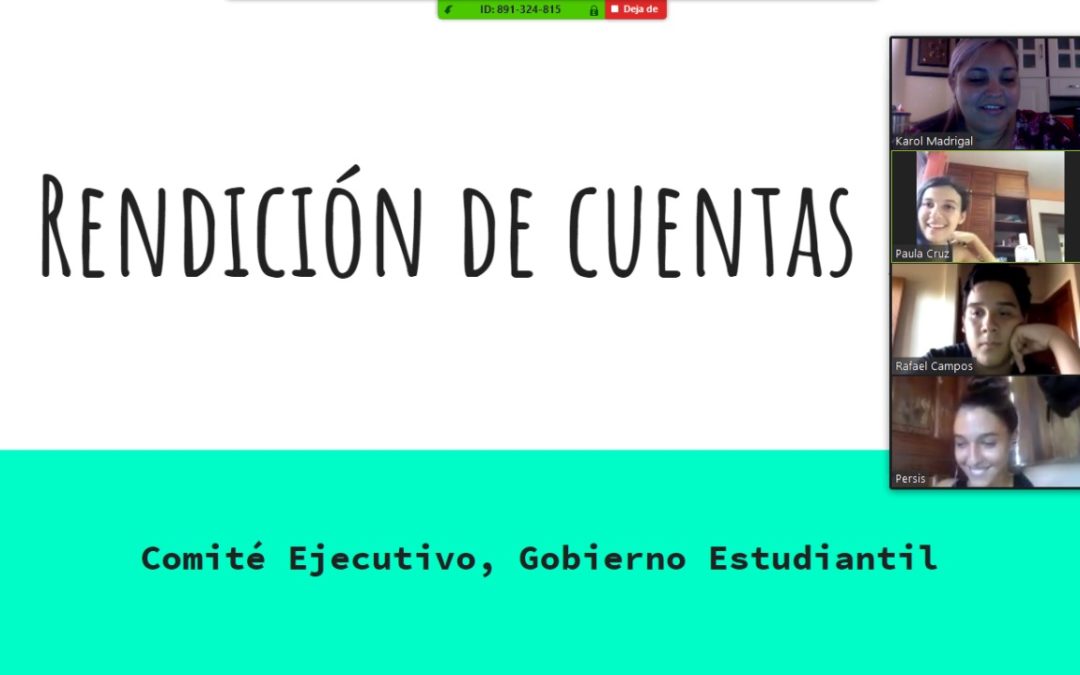
by Karol Madrigal | Mar 30, 2020
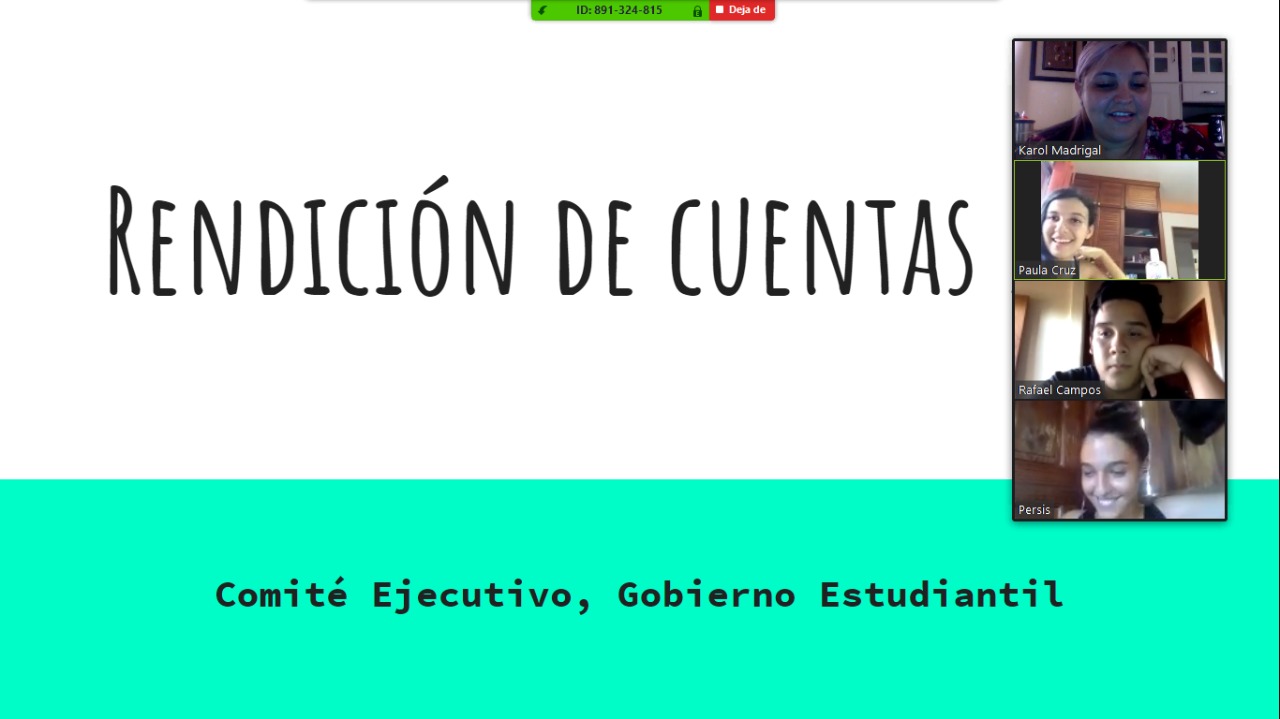
In the face of a crisis like the one we are currently experiencing worldwide, it is of utmost importance to our citizens that the national institutions of leadership take the necessary actions to overcome the emergency. A timely government response can make all the difference, not only in the real impact of the crisis, but also in the responsible attitude of the population.
In the case of Costa Rica, the government’s decisions were made quickly. Even as we go through this experience, in a way, this response has strengthened the credibility of state institutions for the people of Costa Rica. Examples of these government-driven operations range from setting up a specialized health care center for patients with the virus, to closing the borders, to producing and distributing antiseptic solution, and prohibiting vehicle traffic at night. All of these measures have contributed to the public’s perception of a kind of shield, which can only be achieved through good leadership.
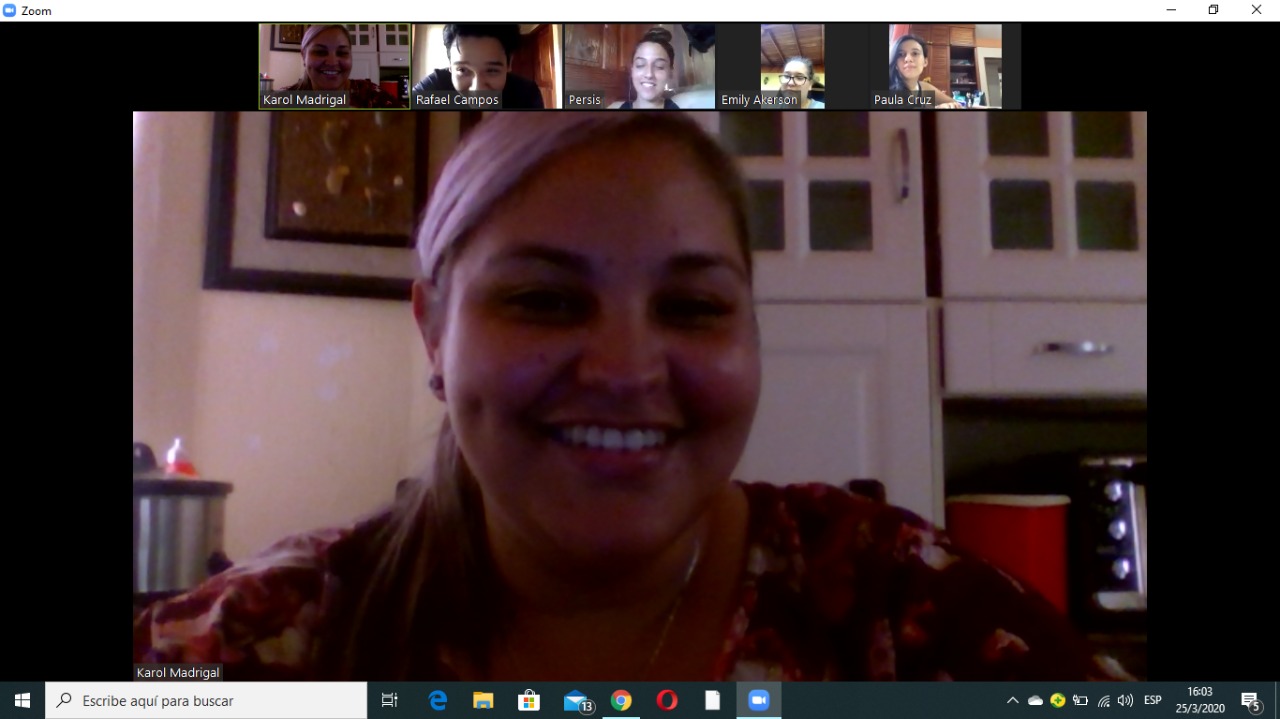
However, the concern and desire to overcome the current situation is not only a concern for the national authorities. On a more local level, the student government of Futuro Verde is aware of how this difficult context is developing and, due to its commitment to the student community, continues to meet in order to discuss ways to provide support to the students when they return to the institution. Additionally, they seek to ensure that a hygiene protocol is maintained to help protect, as much as possible, the health and general well-being of their fellow students.
What other action could more accurately reflect the way that our school prepares students for citizenship, than the genuine concern that our students are showing for their peers during a difficult time like this? Great work, Futuro Verde student government!
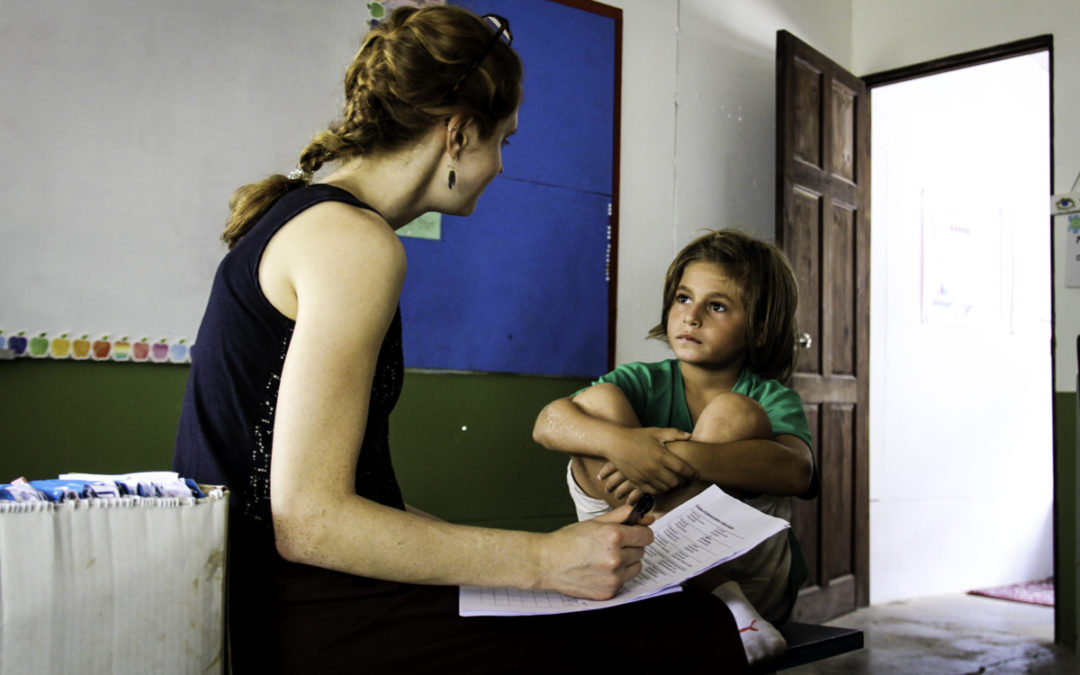
by Angie Briceño | Mar 29, 2020
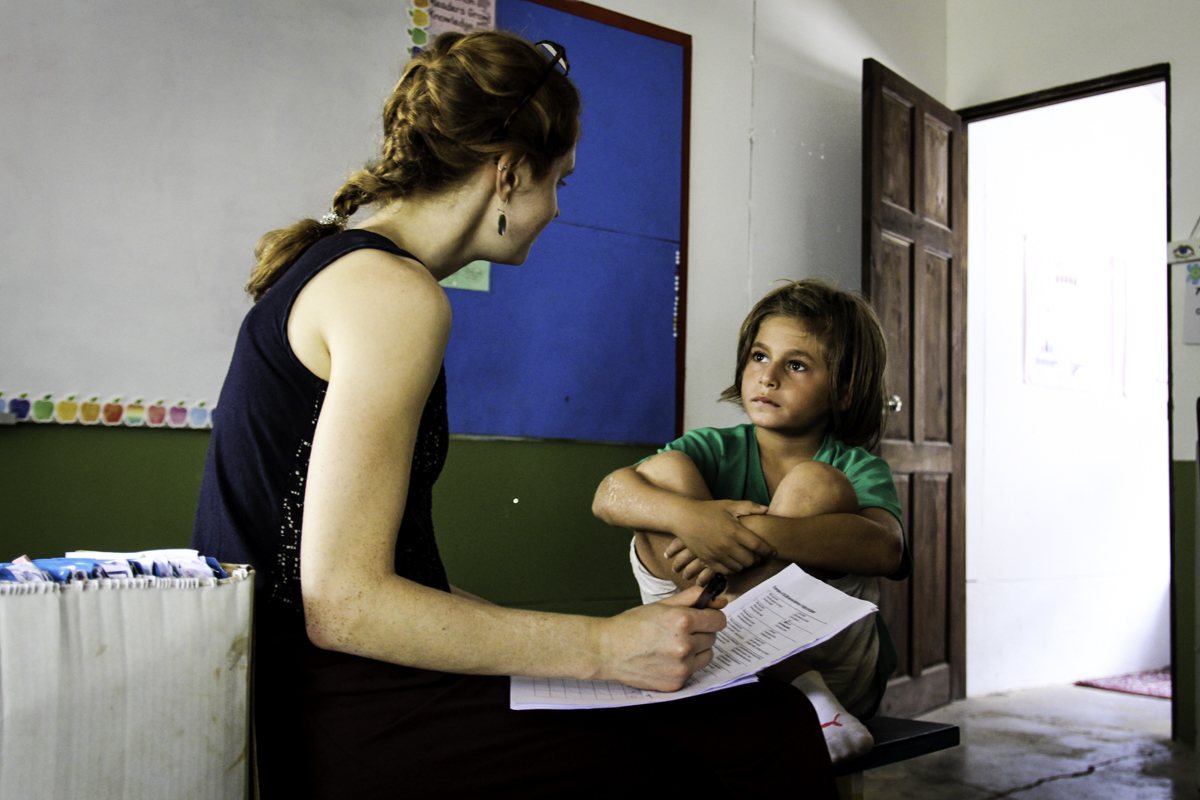
Futuro Verde has an amazing and unique bilingual program. As the language specialist at our school, I get to work with students in all stages of development of both Spanish and English, from pre-K to 12th grade. In addition to receiving instruction in both languages throughout the day, language development has several layers here at Futuro Verde. The base layer that all students receive is a course in which they study multilingual and multicultural themes. This course, called Comparative Language Study at the elementary level and World Languages for our middle-schoolers, also helps students develop important language-learning strategies such as identifying cognates (words that sound or look the same in two or more languages), or using prefixes to infer meaning. The second layer of our language development program involves supporting specific groups of students who could benefit from extra instruction in either Spanish or English.
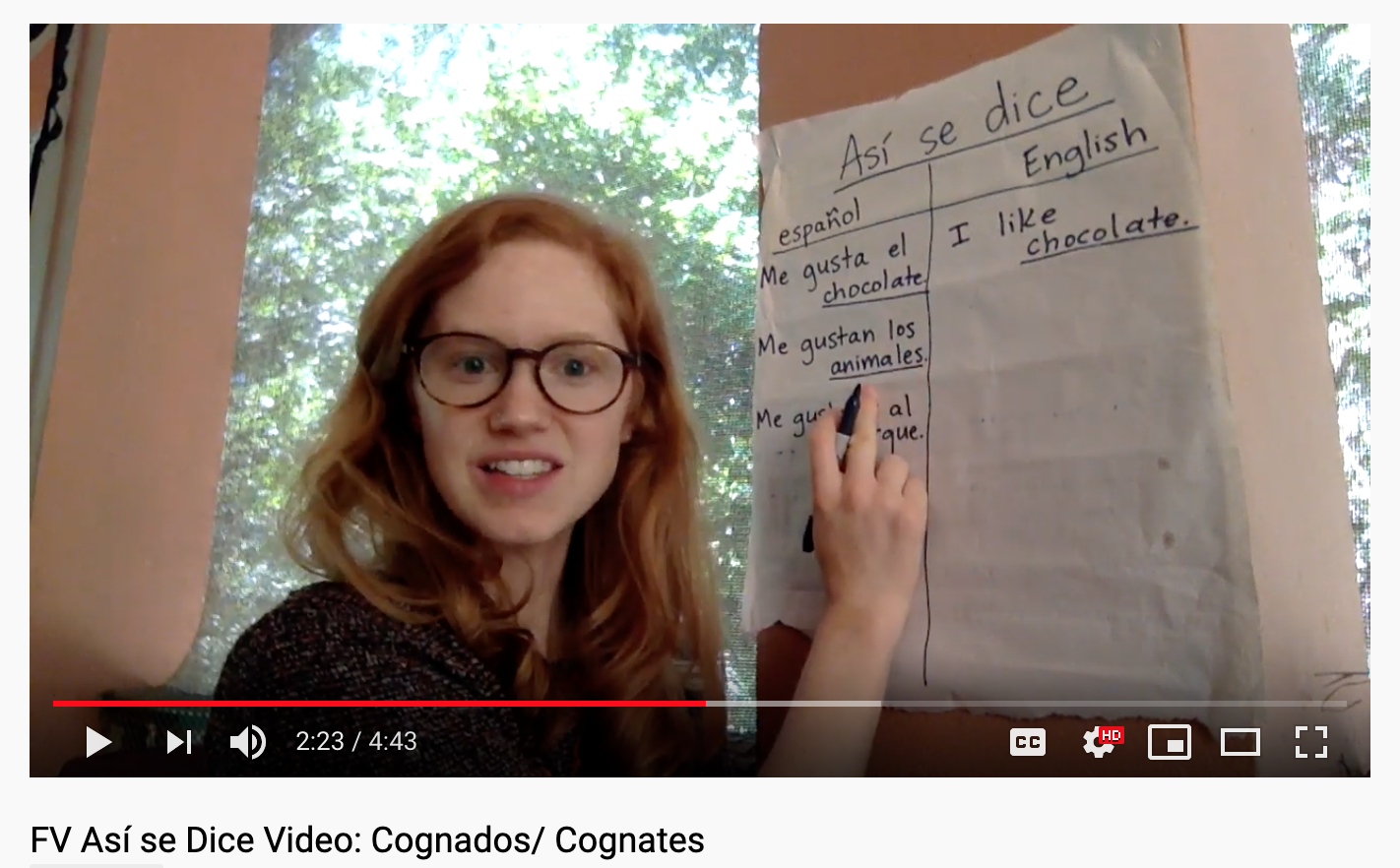
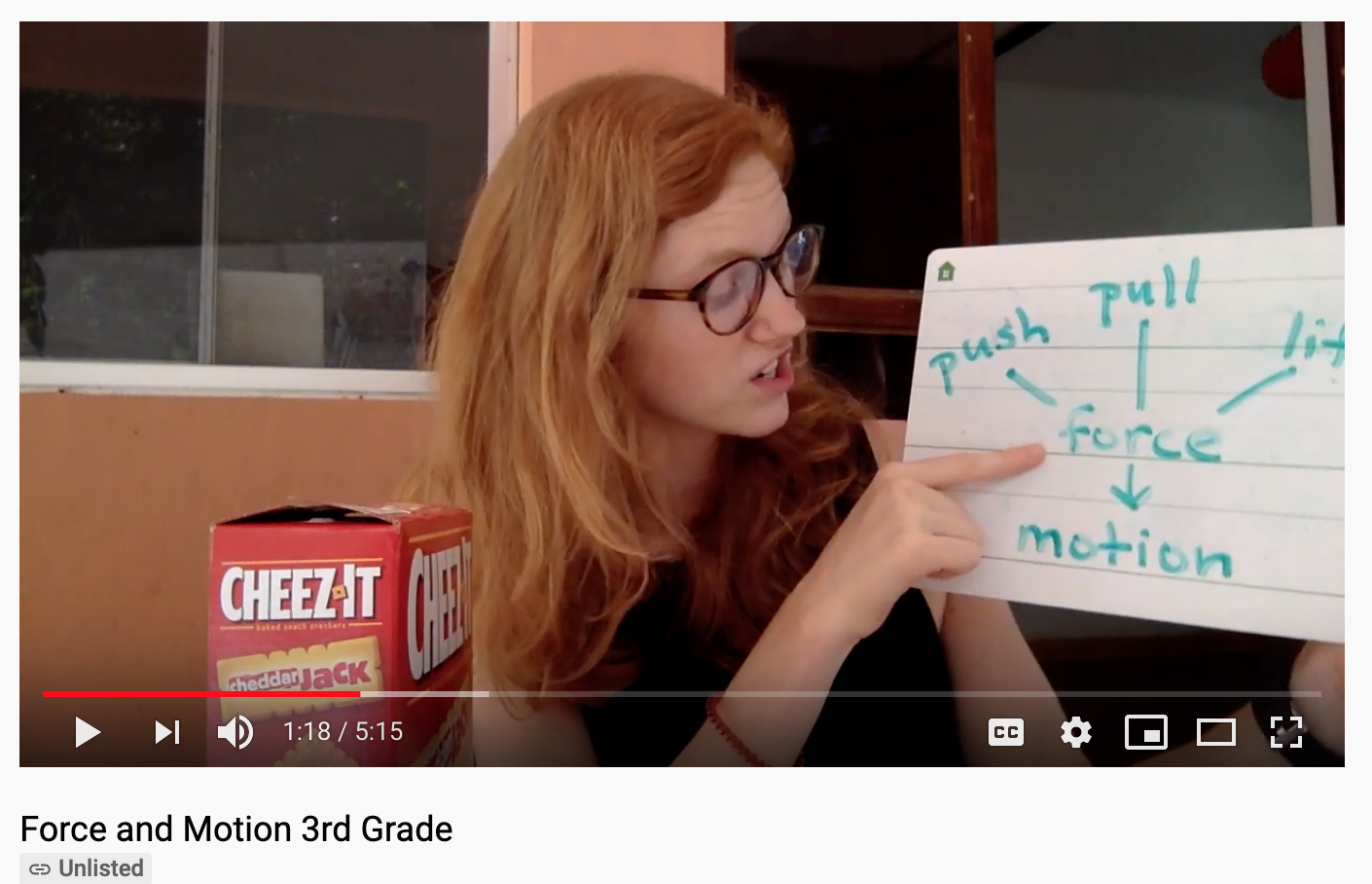
So what do both components of our bilingual program look like during online learning?
Delivering language support virtually can be a challenge, but we are finding ways to help language learners at all levels! Our Comparative Language Study course continues with online mini-lessons that I record myself teaching (for the younger grades) and assign independent work for (in the case of upper elementary). I have also been working with CREW teachers and other specialist teachers to have instructions for all assignments translated so that students and families understand how to complete each task. Additionally, we have provided video supports and modified assignments as added help for certain grade levels and assignments, not only to explain instructions more thoroughly or to guide students in completing certain tasks, but also to adapt the assignments to the needs of language learners. Videos are key here, so that we can convey meaning and content through gestures, images, objects, etc.
Parents, please feel free to reach out if your child is having difficulty understanding their assignments at anika@futuro-verde.org.
Online Special Education Support
by Alannah Anglin
Futuro Verde is lucky to have a multicultural and multilingual student population. The Support Team focuses on serving the population in a multidisciplinary manner, guiding and supporting students from preschool through twelfth grade through three different but related approaches: social, emotional and academic. Since our learning has taken a temporary turn towards virtual learning, the team has taken on the task of continuing to support students, working together with both teachers and parents. We have taken the following initiatives:
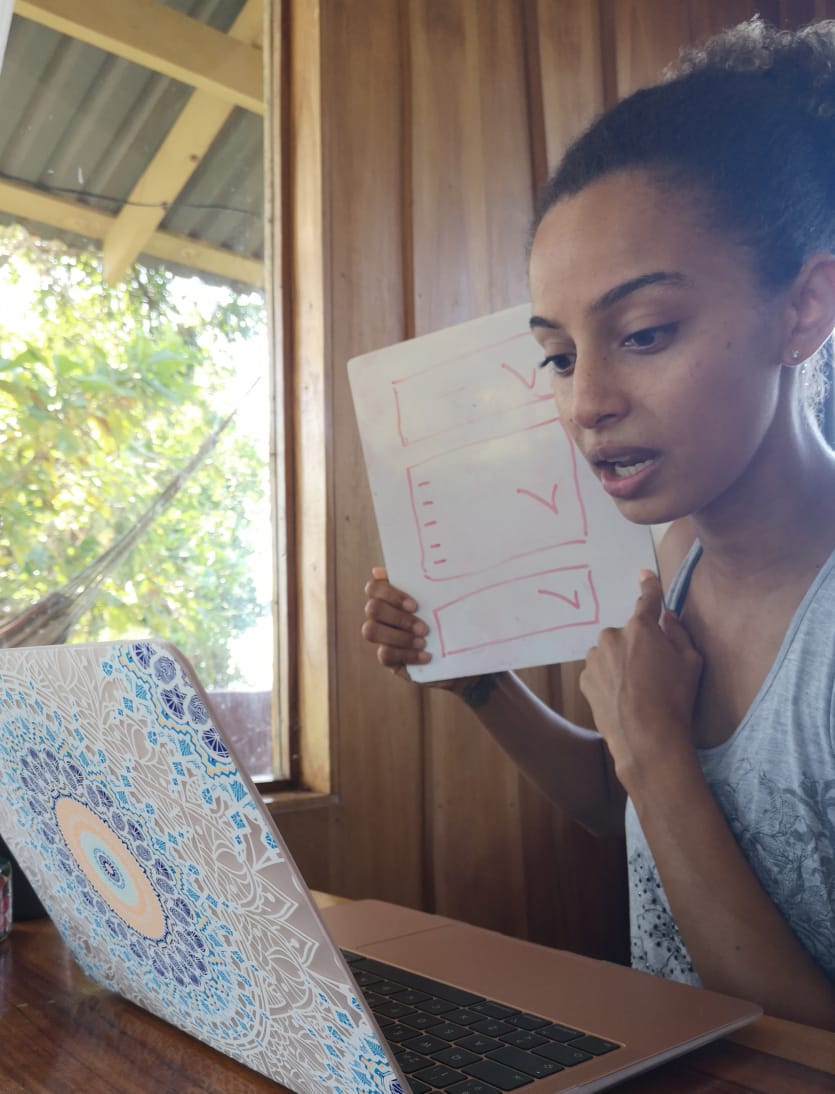
Create set schedules for online learning, seeking to bring balance, well-being, family cohesion and academic structure to homes.
Proposed Online Learning Schedule for PreK – 2nd grade
Proposed Online Learning Schedule for 3rd – 6th grade
Create virtual support ¨chats¨ in Seesaw or Hangouts, where we seek to maintain immediate communication with students and parents or guardians who wish to do so; providing guidance and answering any questions about the assigned activities.
Keep in touch with parents about their children’s progress, making sure to provide the support required by the students to facilitate the understanding and performance of the activities.
We have continued to give the Writing and Reading Workshops, taking into account the needs and objectives of each individual student.
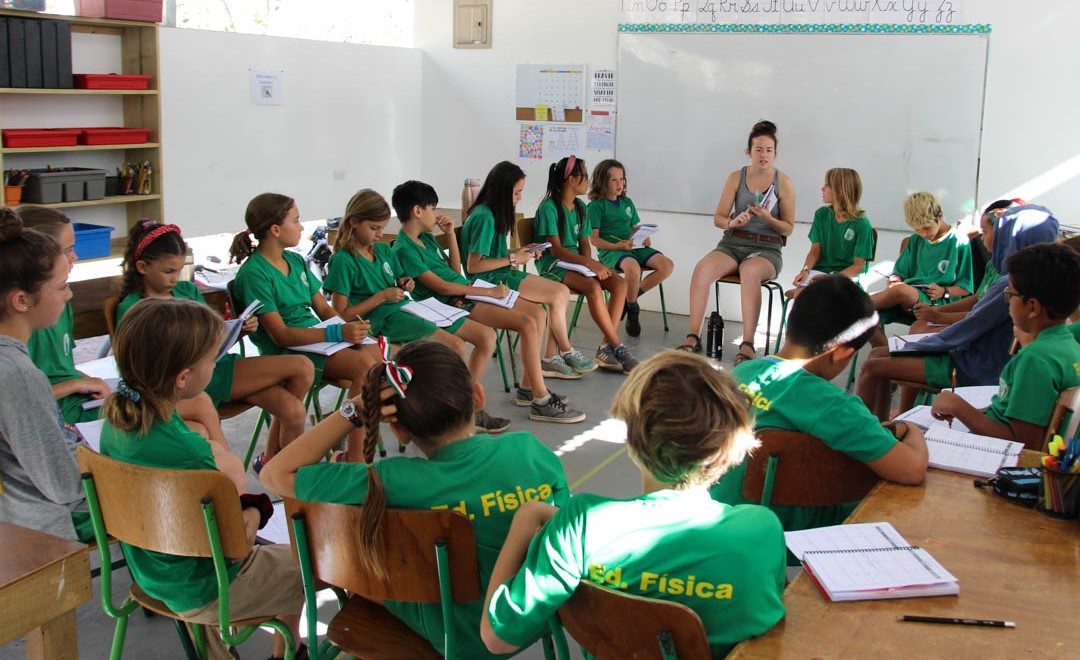
by Angie Briceño | Feb 26, 2020
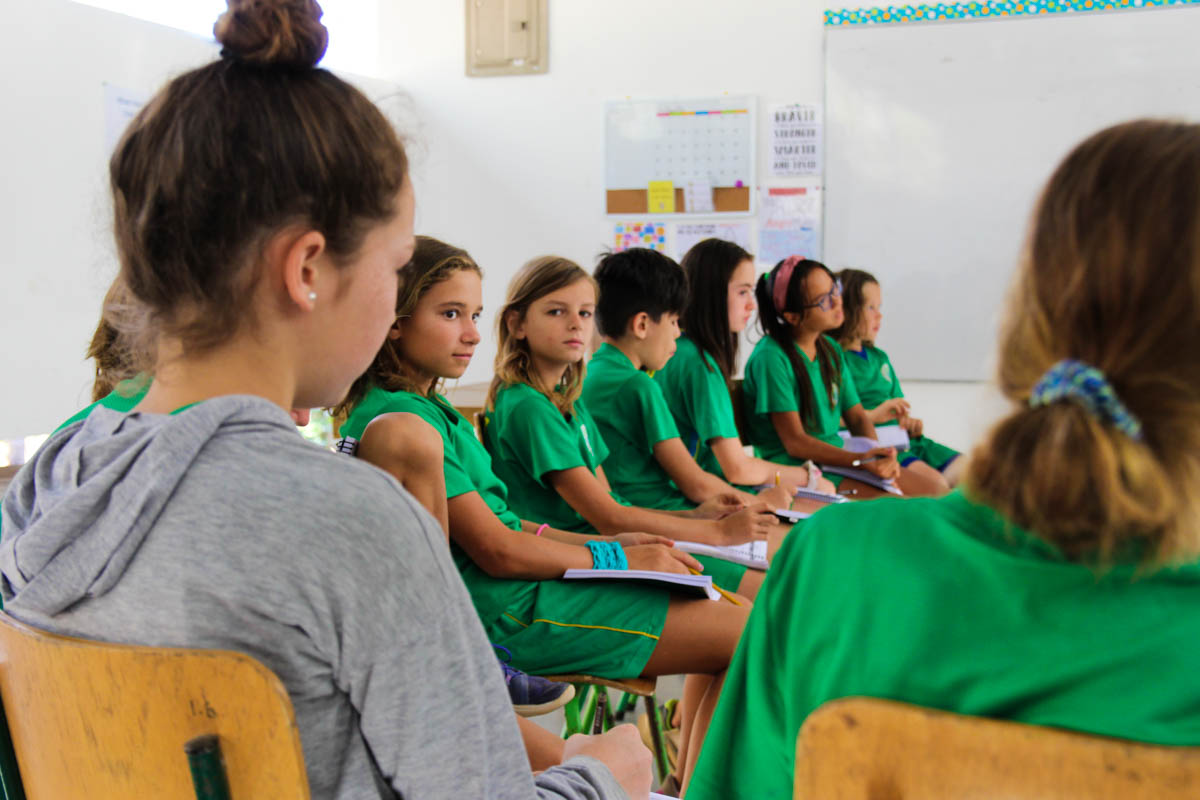
What is CREW?
CREW is a special time when students in each grade meet with their CREW teacher to do various activities in order to develop empathy, a sense of belonging, and a connection with others. At Futuro Verde, we don’t have passengers, we are all members of a CREW. This special time happens twice a week: on Mondays during the first hour of school and on Fridays during the last hour of school.
During CREW time students from pre-k to 12th grade plan the details of their annual field trip: the destination, budget, fundraising plan, transportation, etc.
It is important to remember that the students are in charge of raising funds for their field trips. This activity brings them together and brings the focus away from any socio-economic differences of the students, while also making it easy on parents’ pockets.
In addition, this year each CREW group will choose a cause that they identify with and want to work on to create positive change.
How can you help?
Throughout the year, each CREW group will organize activities to raise money for their field trip and the cause they have chosen to support. Some of the fundraising activities include: school sodas (selling food), toy sales, bake sales, no-uniform day passes for students, raffles, movie nights, and other clever fundraisers invented by our students!
If you would like to help with our students’ CREW efforts, send a little extra money with your student so that he or she can enjoy the tasty snacks students sell at our soda (restaurant/ kiosk). We will have soda every day during the month of March except: March 2, 3, 5 and 30.
Students may also participate in the no-uniform day if they buy a ticket for ₡500. In March, we will have the following non-uniform days:
- March 13, to benefit 7th grade
- March 27, to benefit 9th grade
- March 30, to benefit 3rd grade
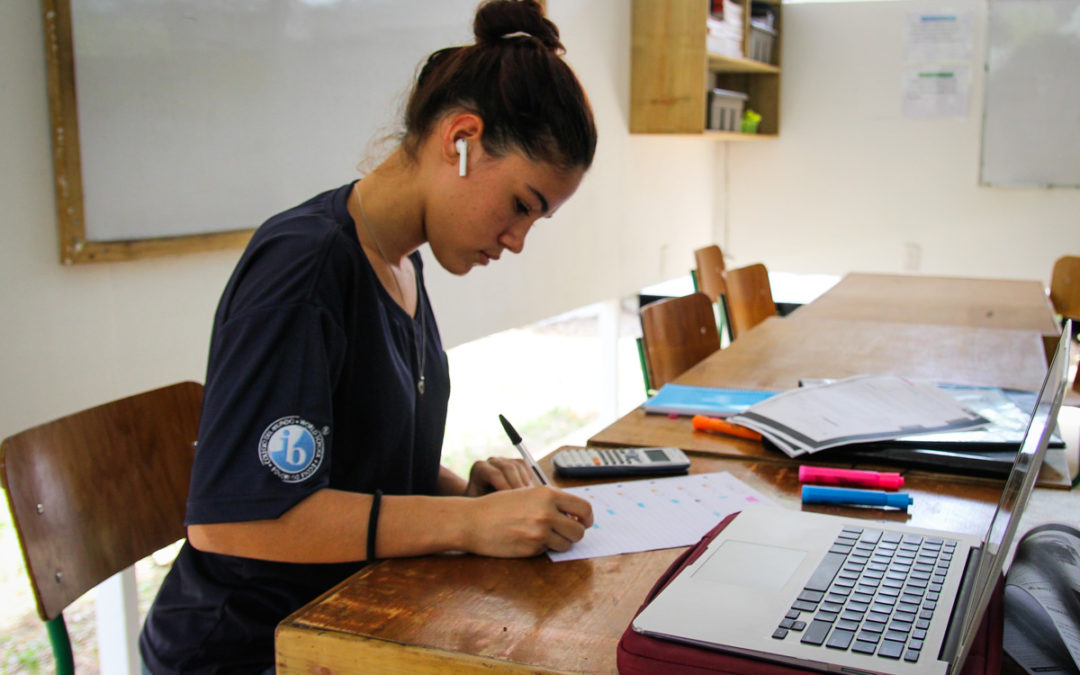
by Khalida Lockheed | Feb 25, 2020
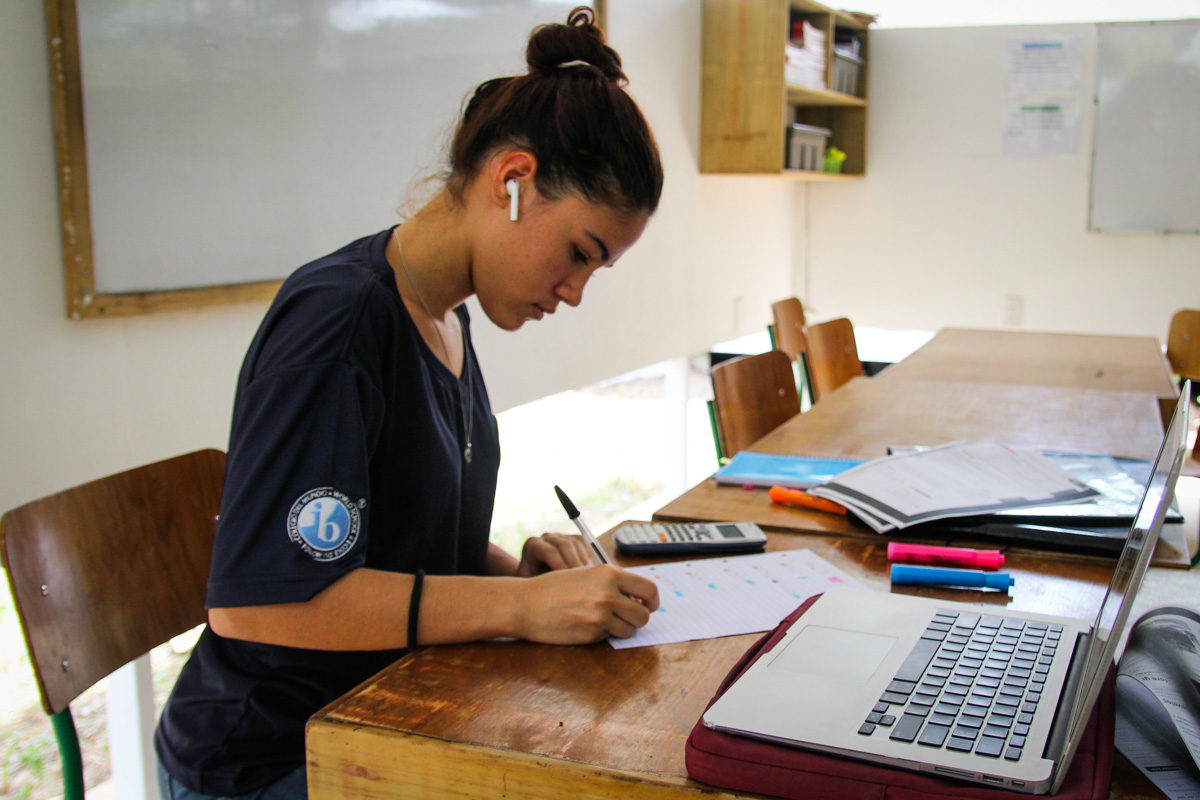
At Futuro Verde, being an IB school means teaching students to think independently, encouraging engagement with local issues in a global context, and valuing both personal and academic achievement. While our IB Diploma Program students may take a several pathways to graduation, all Futuro Verde students benefit from being an IB World School.
Research shows that the IB Diploma Program stands out for factors such as university preparedness, enrollment and achievement, academic persistence, critical thinking, and higher education outcomes. According to a study from 2013, IB high school graduates from the USA were 2 times more likely to attend and ultimately graduate from a four year university than the average US national graduate. The most notable reason that IB Diploma Program graduates persist at university and ultimately graduate at higher rates than non-IB graduates is their preparation for juggling university coursework. Most notably, the areas of time management, study skills and writing (think Extended Essay!) were highlighted by university students who had graduated with the IBDP as being the most helpful.
On the whole, research shows that the IB DP graduates outperform non IB graduates from across all advanced high school programs worldwide, be it A levels or AP. Part of the reason for this is the integrated nature of the curriculum, with the Core (Theory of Knowledge, the Extended Essay, and CAS) requiring critical thinking, research experience, time management, and civic mindedness. Another part is the academic rigor. In a global study of a comparison between the mathematics course offerings of the DP and five other advanced qualifications from around the world, researchers found that “IB’s further mathematics HL was determined to be the most cognitively demanding course of the curriculums examined.” Further evidence of the academic rigor may be deduced from a study conducted in the USA this year which showed that average SAT scores among IB students, as compared to their non-IB peers, were over 100 points higher!
Finally, in summary of the value of the IB Diploma for university attendance rates, university selectiveness, and university performance, research finds that:
Former DP students in the United States (US) are significantly more likely to attend a ‘selective’ or ‘highly selective’ institution compared to the average US college-goer.
In the UK, they are more than twice as likely attend a top 20 university than the average A level student.
Minority and low income IB students from Chicago Public Schools were shown to go on to university at significantly higher rates than a matched control group of their non-IB peers of similar academic ability.
Feedback collected from a wide range of IB graduates suggests that IB students have an easier time adjusting to university studies.
Surveys of university and college admissions staff in the US, the European Union (EU) and Australia show that these professionals are both familiar with the programme and hold it in very high esteem compared to other qualifications.
An analysis of the recognition policies of the top universities in the US reveals that most of these institutions grant credit or advanced standing for high performance in DP courses.
http://www.ibo.org/research
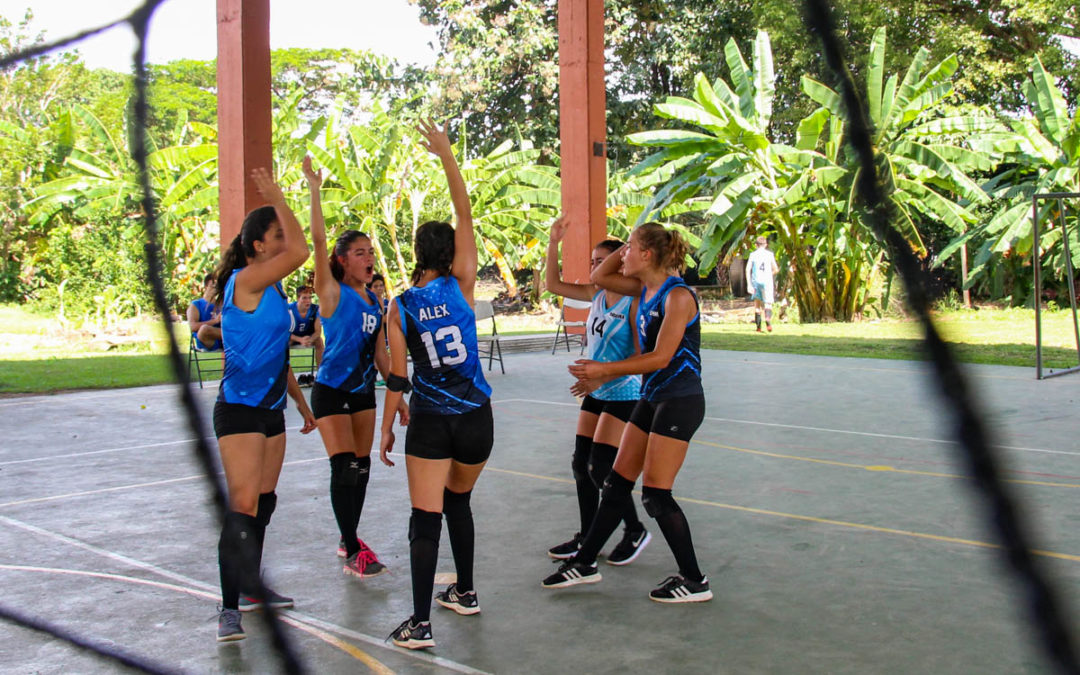
by Noelia | Feb 23, 2020
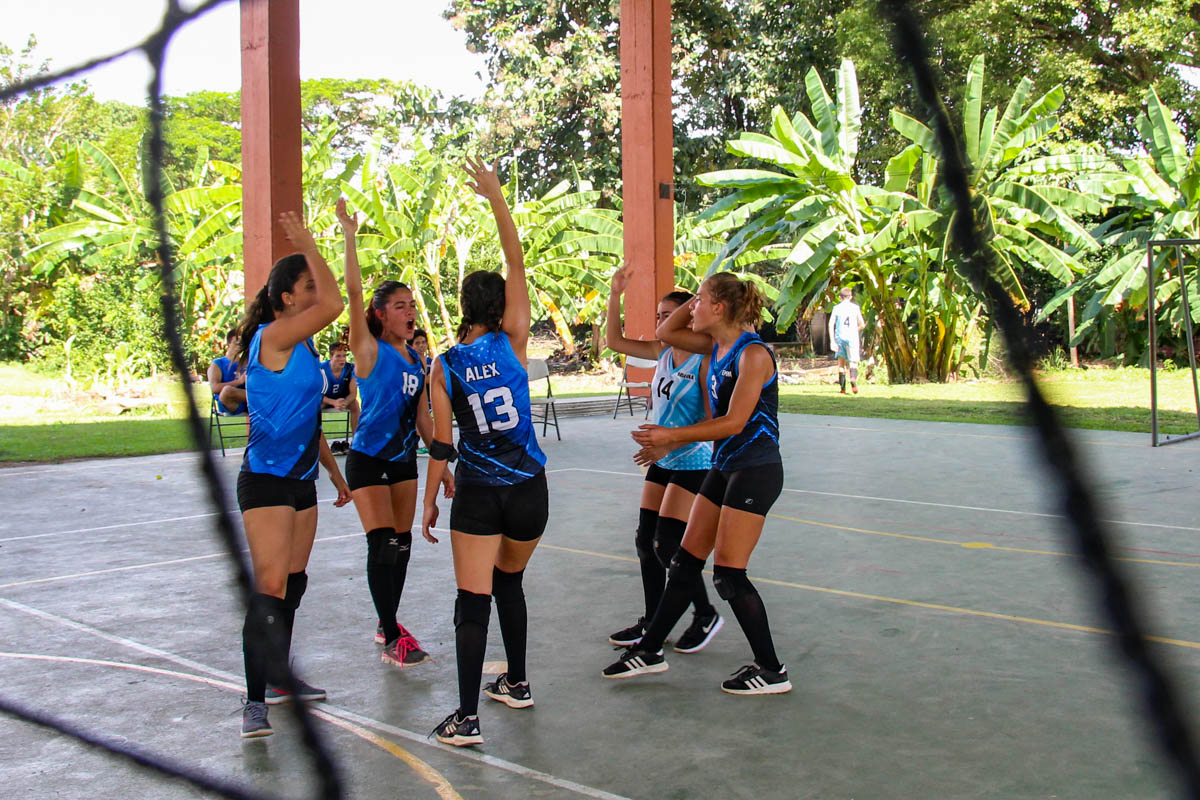
At Futuro Verde we provide a holistic education that spans many important educational areas, and sports, recreation and physical education are no exception. We believe that sports activities promote an ideal student life environment for developing life skills. As in previous years, during this new school year we will continue to offer a wide variety of opportunities to our students and our community. Some of these include our second annual chess tournament which will be held in March. We will continue with our first annual swimming tournament which will be held in May. In the second trimester we will hold our traditional volleyball tournament and end our school year with the most anticipated event of the year, our fourth annual Futuro Verde Trail Fun Run 2020.
In addition to these sporting events, we will continue training student athletes to compete in the Ministry of Public Education’s Student Games. Specifically, we will be forming teams to participate in swimming, chess, cross-country, volleyball and beach volleyball.
As you can see we will have a full year of extracurricular activities for the students.
If you would like more information on how your student can join one of the competitive teams or if you would like to get involved as a coach or participant, don’t hesitate to write to me at directoratletico@futuro-verde.org

















